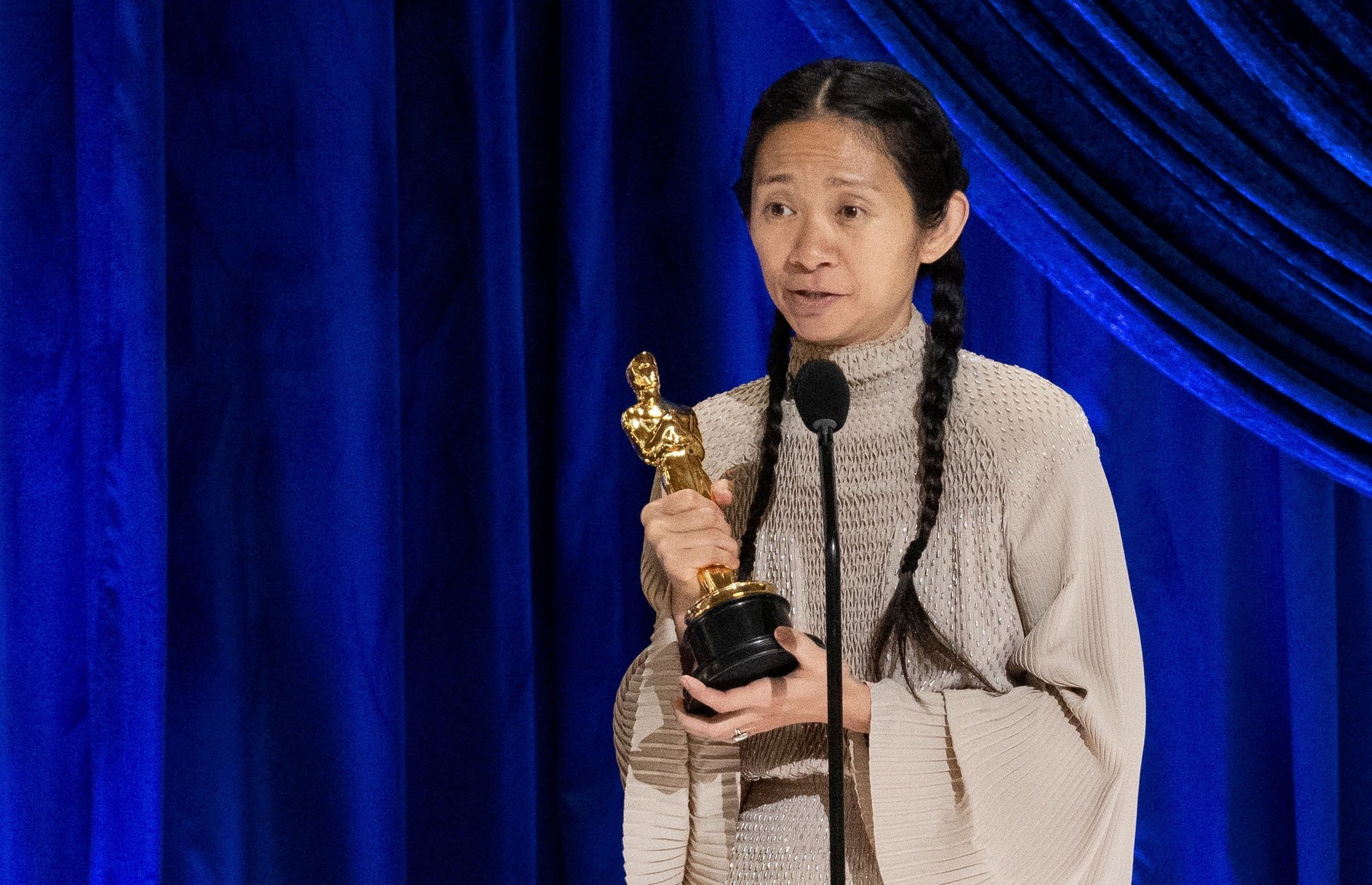“Joy that can’t be celebrated:” the Chinese internet is lamenting the censorship of Chloé Zhao
Normally, the recipient of an award as prestigious as an Oscar is celebrated in their home town or country, but in China, where this year’s best director Chloé Zhao was born, there is a curious silence.


Normally, the recipient of an award as prestigious as an Oscar is celebrated in their home town or country, but in China, where this year’s best director Chloé Zhao was born, there is a curious silence.
Zhao, born in Beijing as Zhao Ting in 1982, made history on Sunday (Apr. 25) by winning the award for Nomadland, making her the first Asian woman, and only the second woman ever, to receive the famous gold statuette for directing. Nomadland, which tells the story of van-dwelling nomads in the US, also won best picture. During her acceptance speech, Zhao referred to her roots by reciting a classical Chinese phrase that means “people at birth are inherently good,” and said the line helped her keep going when things became hard.
But Zhao’s expression of attachment to Chinese culture hasn’t saved her from being censored on Weibo, where users say mentions of Zhao and her Oscar are being erased at a rapid pace. Zhao was called a “traitor” upon winning a Golden Globe earlier this year, because of a 2013 interview with New York-based Filmmaker Magazine, where she said that China is a place “where there are lies everywhere.”
Zhao’s relatively privileged family background—her stepmother Song Dandan is one of the country’s most prominent comic actresses while her dad was once general manager of a large state-owned steel company—is another source of controversy in China. Some argue Zhao’s affluent upbringing helped her to get an education in countries like the US, which is out of reach for a large portion of Chinese people.
Following the backlash against Zhao in March, there were instances of Chinese censorship of Nomadland, while the scheduled release of the film in China on April 23 also didn’t take place. Hashtag #Nomadland# has been blocked on Weibo, which said the page could not be found due to “relevant laws, regulations, and policies,” according to a Quartz search on Monday (April 26). But content related to Zhao’s Golden Globe award can still be found on Weibo and other Chinese platforms.
Zhao’s Oscars win seems to have reignited Beijing’s uneasiness towards her. Quartz searches of Nomadland and Zhao on Weibo returned few results related to her Oscar award. Meanwhile, China’s major media outlets have largely stayed quiet on the issue, and are yet to feature her win on their front pages, or report on it. Zhao’s victory is also nowhere to be found among Weibo’s top 50 most trending topics.
Many people are figuring out ways to celebrate Zhao’s success, without mentioning her name or Nomadland. Qiao Mai, a Chinese novelist with over 1 million followers, posted “joy that can’t be celebrated” on her Weibo page in a supposedly subtle reference to the censorship. Qiao posted the line shortly after she posted a screenshot with a caption that says Frances McDormand, who won best actress for Nomadland stars in Zhao’s film. “This place has become a cyber ‘nomadland,'” one of Qiao’s followers commented under the post. In another post, a blogger said “she made it, like it or not” without mentioning Zhao, a message that was quickly grasped by other commentators who said that even quiet celebration is still a celebration.
Some also compared China’s silence on Zhao’s victory with its excitement over South Korean film Parasite‘s best picture win at the Oscars last year. “When Parasite won the award people in China were busy celebrating, being envious, and leeching off the film’s attention,” said one user. “This year, a female ethnic Chinese director got the awards, but even keywords related to her cannot be seen on social media. This is extremely lame.”